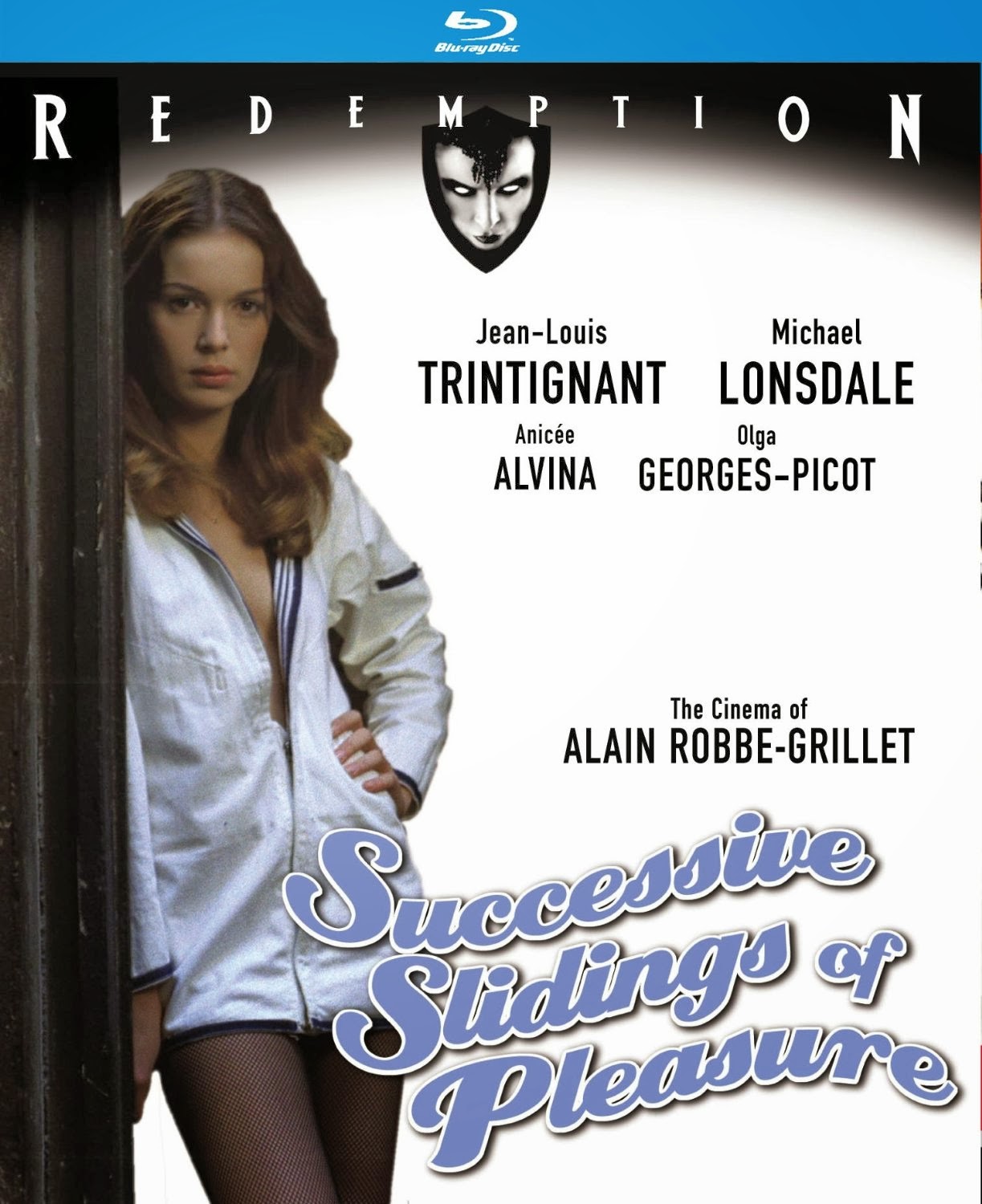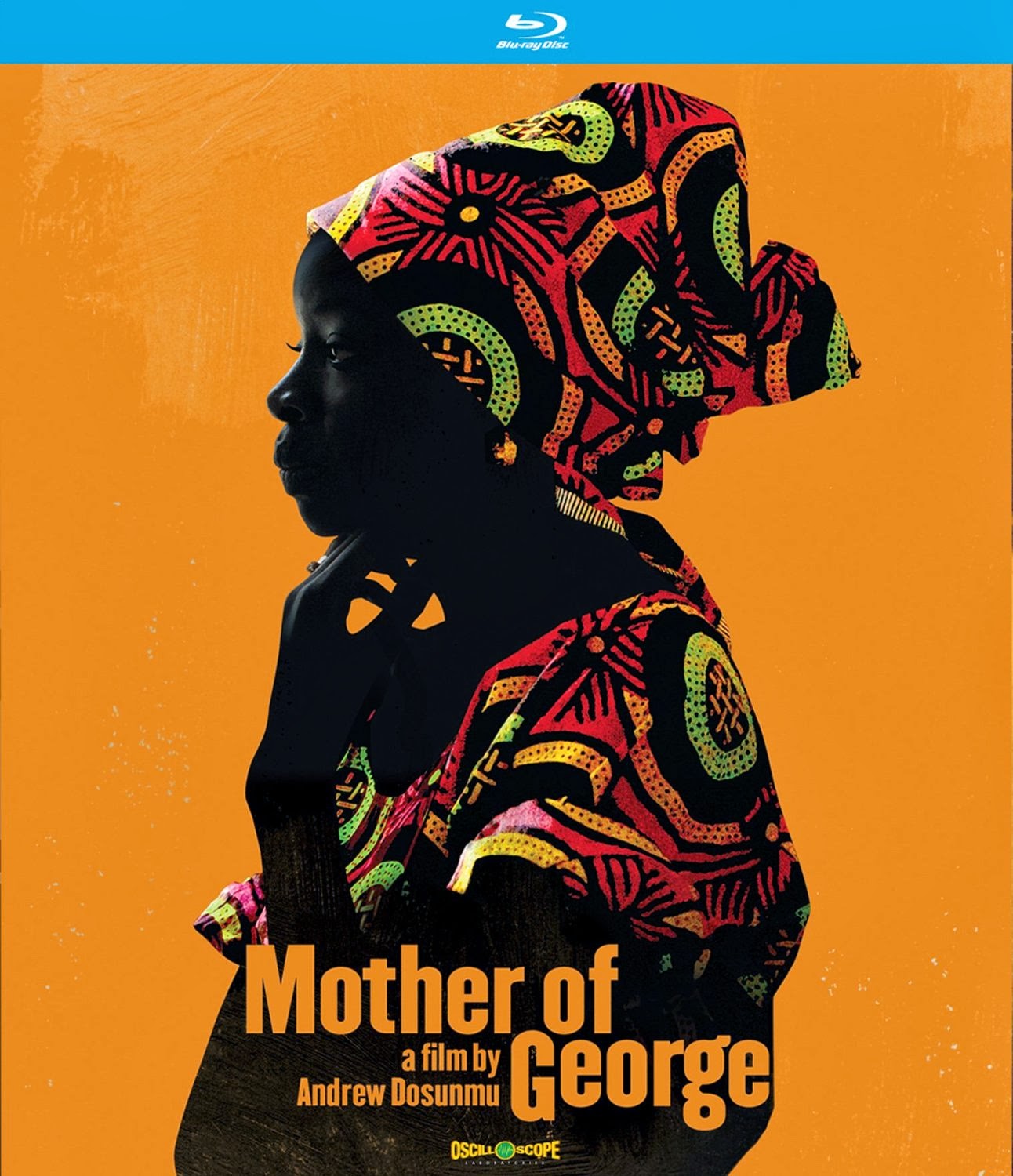The Films of Lionel Rogosin,
Volume II
(Milestone/Oscilloscope)
Lionel Rogosin’s cinema came from
the heart, and this release comprises a pair of the maverick director’s historically
and culturally important features: 1959’s Come
Back, Africa is an illuminating snapshot of living under the evils of South
African apartheid, and 1970’s Black Roots
looks at beauty and tragedy in America through stories and songs by musicians
like Larry Johnson and Wende Smith. Both films, painstakingly restored, look smashing on Blu-ray, while extras include a Martin Scorsese intro and Rogosin audio
interview; Rogosin’s Africa
making-of, An America in Sophiatown; Roots making-of, Bittersweet Stories; and the documentary, Have You Seen Drum Recently?
(Magnolia)
Jaco van Dormael makes few films—only
two since his 1991 debut Toto the Hero—but
he never skimps on imagination: this at times dazzling, often dizzyingly
innocuous exploration of one man’s lengthy life (and the paths he might have
taken) is given 155 expansive minutes to tell…well, not much. Despite solid work
by Jared Leto in the title role and Diane Kruger and Juno Temple as women in
his life and a splendid visual design, the movie’s a superficial sci-fi mash-up.
The hi-def transfer looks superb; extras include deleted scenes, making-of
featurettes and the 139-minute 2009 theatrical cut.
(Magnolia)
How a tiny Alabama swamp town was
ground zero for some classic recordings of the past several decades is what Greg
“Freddy” Camalier’s exquisite music documentary explores. Groups from the Rolling
Stones to the Allman Brothers and Lynyrd Skynyrd, and singers from Aretha
Franklin and Bob Dylan to Paul Simon all made classic singles and albums at the
unique studio—and interviews with many of those artists, other fans like Bono
and Alicia Keys, and the men who ran the place, the Swampers (immortalized on
“Sweet Home Alabama”) are on board to discuss the history and influence of the
place. The Blu-ray image is top-notch; extras include deleted scenes and
interviews.
(Eagle Rock)
After decades of these
celebrity-studded comedy shows—with musical interludes—in London, America finally
hosted its own in 2012 at Radio City Music Hall, bringing together scattershot
stand-up routines and sketches by Jon Stewart, John Oliver, Russell Brand,
Eddie Izzard, Sarah Silverman and Paul Rudd, with tunes by Coldplay and Mumford
& Sons. The draggy 135-minute event is punctuated by slightly desperate
appearances by some of the former Monty Python troupe, who briefly perk up the
entire show. The Blu-ray image is decent; extras include backstage interviews.
Many French films get remade in
the U.S., but this insightful dissection of the volatile relationship between a
master vineyard owner and the adult son who was never good enough for him will
doubtfully get the Hollywood green light. That’s all to the good since powerful
performances by Niels Astrup (father), Lorant Deutsch (son), Anne Marivin (son’s
wife) and Nicolas Bridet (estate manager’s son, everything the real son is not)
would be hard to recreate. This immersive psychological portrait by
co-writer/director Gilles Legrand flirts with thriller territory but never
rings false. The Blu-ray image looks terrific; extras include deleted scenes
and interviews with Deutsch and Legrand.
American Experience—1964
(PBS)
Beginning just weeks after the
JFK assassination—which paralyzed the country—1964 was a pivotal year in
American culture and politics, as this entertaining “cliffs notes” PBS program
shows. From the arrival of the Beatles and the ascension of Cassius Clay to the
LBJ presidency and Barry Goldwater’s conservative movement, and from the escalating
civil rights struggle to the nascent feminist movement, 1964 encapsulates 12 important American months in two hours, with a
selection of archival footage and new interviews that complement each other
compellingly.
(Icarus)
During the Cold War, citizens of
Tallinn, the capital of the then Soviet republic of Estonia—the closest Iron
Curtain city to the “evil” West—were able to watch Finnish television despite
their overlords trying to jam the signals. That they could watch American TV shows
like Dallas and hear banned rock and
disco music helped finish off the Communist state. Directors Jaak Kilmi and
Kiur Aarma, who grew up during those tumultuous times, have made a wacky but perceptive
documentary that provides a different viewpoint of those heady days.
(First Run)
Mike Dorsey’s personal glimpse at
the stunning Southern California home famed architect Richard Neutra designed
and built for the Oyler family may be only 45 minutes long, but its themes of
architecture, history, family and natural beauty are brilliantly woven into its
structure. Illuminating interviews with Neutra’s sons, with Richard Oyler—who asked
Neutra to build the house in 1959—and with its current occupant, actress Kelly Lynch,
are interspersed with gorgeously photographed views of this extraordinary
building and its surroundings. Extras include deleted scenes and a house walk-through
by Lynch and Oyler.
(Warner Archive)
This bizarre sci-fi series didn’t
last long (1 season, 23 episodes, in 1972-73) but its original premise about probes—robots
used by a worldwide surveillance group—can be seen as prescient in a century dominated
by the NSA and Edward Snowden. Starring first-rate TV actors like Burgess
Meredith, Hugh O’Brian, Doug McClure and Tony Franciosa, and with special
guests like the era’s ubiquitous Bill Bixby, Sebastian Cabot, Stefanie Powers
and Barbara Feldon, Search is
definitely worth searching for—once you start watching, don’t be surprised if
you make your way through all six discs.
(e one)
Sergio Castellito’s heavy-handed
drama about how horrific events in the Bosnian civil war forever shattered the lives
of even those who were not yet born features gripping performances by Penelope
Cruz, Emile Hirsch and Saadet Aksoy, all of whom have to deal with melodramatic
flip-flops manufactured by Castellito’s wife, screenwriter Margaret Mazzantini.
This overlong film is hamstrung throughout its length by often ludicrous machinations.
Extras are interviews with Castellito, Cruz, Hirsch and Aksoy.









.jpg)
.JPG)
.jpg)








.jpg)












.jpg)












